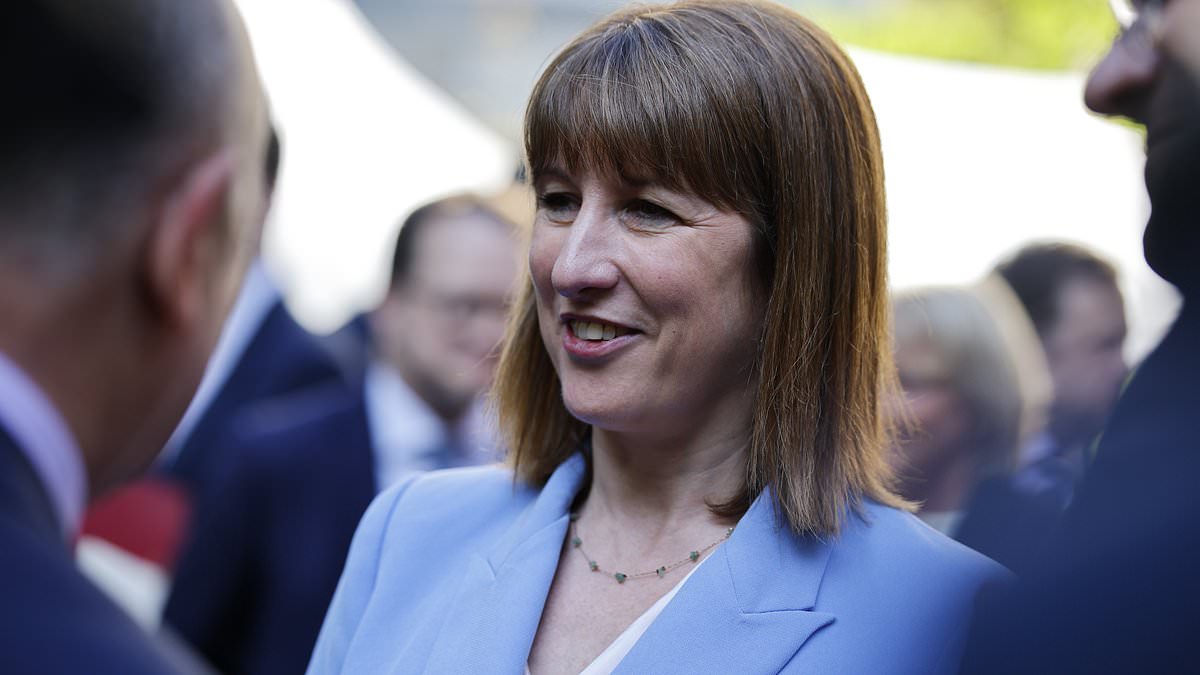A stealth tax raid on millions of pensions savers is ‘firmly on the agenda’ as Rachel Reeves looks to increase revenues, experts have said.
The Chancellor is under growing pressure to raise billions of pounds to fund extra spending commitments and rising borrowing costs ahead of her autumn Budget.
This could include having to find an estimated £3.5billion to pay for the scrapping of the two-child benefit cap, following demands by Labour MPs to lift the restriction on welfare.
Amid the increasing strain on the public finances, HMRC has been revealed to have explored a shake-up of the salary sacrifice system used by pension savers.
This allows employees to voluntarily give up part of their wages to pension contributions in order to lessen the income tax and National Insurance due on their salaries.
Such schemes are often used by higher earners to avoid ‘cliff edges’ in the tax system, amid the long-running freeze to income tax thresholds.
HMRC recently commissioned research to explore three different options for altering salary sacrifice arrangements for pensions.
This found that an employee on a yearly salary of £35,000 could lose more than £500 if the Government looked to raise more tax revenue from pension savers.
The study looked at three different scenarios for altering salary sacrifice arrangements for pensions.
The first removed the National Insurance exemption for salary sacrifice pensions, resulting in an employee on a salary of £35,000 paying an extra £210 in National Insurance, while their employer paid an additional £242.
The second scenario removed both the National Insurance and income tax exemption, resulting in the employee paying an extra £560 in the combined taxes while the employer paid an additional £242 in National Insurance.
The final scenario removed only the National Insurance exemption for salary sacrifice pensions beyond a threshold of £2,000 per year.
This would mean that employers and employees would not need to pay National Insurance on any salary sacrificed up to £2,000, but would need to pay National Insurance on any salary sacrificed above this amount.
Gordon Brown today piled pressure on Rachel Reeves over the two-child benefit cap.
The former PM used an article in The Guardian to call for a gambling or banking levy that could cover the more than £3billion cost of abolishing the limit.
He warned that ‘child poverty cannot be eradicated by breakfast clubs or family hubs alone’.
The ex-premier cited opinion polling he had commissioned that found ‘the public not only agrees that we must invest in the next generation, but also that all of us benefit if children grow up to be healthy, educated and productive members of society’.
Mr Brown added: ‘Once ‘don’t knows’ are eliminated from the sample, 85 per cent favour a £3billion tax on gambling, and 75 per cent favour a tax on the banks – most also agreeing to earmark the money for poverty reduction.’
For an employee earning £35,000 who has reduced their salary by 5 per cent, the annual amount of salary sacrificed would fall below the threshold so no additional tax would need to be paid.
But, for an employee earning £45,000, reducing their salary by 5 per cent would result in £2,250 of salary sacrificed per year.
The £250 above the £2,000 threshold would therefore be liable to employee and employer National Insurance, meaning the employee would have to pay £30 extra in National Insurance and the employer an additional £34.
Sir Steve Webb, the former pensions minister, said HMRC’s consultation put a potential tax raid ‘firmly on the agenda’.
The ex-Liberal Democrat MP, now of consultants LCP, told The Telegraph it was ‘very revealing’ that HMRC had paid for research into the response of employers.
‘Although the research was commissioned under the previous government, the desire to raise additional revenue is, if anything, even more acute today,’ he said.
‘With a chancellor reportedly looking to make up a multibillion-pound hole in the public finances in her autumn Budget, this research suggests that changes to salary sacrifice are firmly on the agenda, and likely to be considered as a potential revenue-raising measure.’
Jonathan Watts-Lay, of financial wellbeing and retirement specialists Wealth at Work, said the move was a ‘stealth tax’.
He added: ‘It would be bad for everyone. Whether they just do National Insurance or National Insurance and income tax, the fundamental of all those scenarios is that people have less money going into their pension unless they up their contributions.
‘You’re basically saying to someone you either need to pay more money, or you carry on and your pot will be smaller when you get to retirement.
‘There’s no positive impact of it. They either take the pain, or they take the pain when they get to retirement.’
As well as potentially scrapping the two-child benefit cap, Ms Reeves is also having to fund the Government’s U-turn on axing winter fuel payments for millions of pensioners.
In addition, both the Chancellor and Prime Minister Sir Keir Starmer are under pressure from Labour MPs to reverse other planned welfare cuts.
A Treasury spokesman said: ‘These claims are totally speculative. HMRC regularly commissions independent research on all aspects of the tax system.
‘We are committed to keeping taxes for working people as low as possible.’
